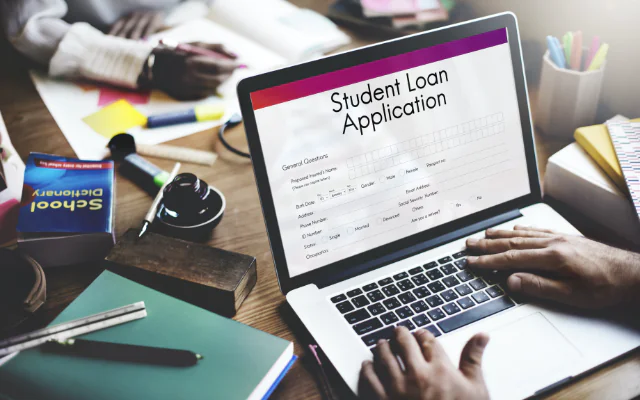Introduction
In today’s credit-driven economy, loans serve as essential tools for meeting various financial goals—whether it’s buying a home, starting a business, financing education, or handling medical emergencies. But before any financial institution approves a loan, they first assess your loan eligibility. The big question is: Are you meeting the bank’s loan eligibility criteria?
Understanding loan eligibility is crucial not just for approval, but also for securing better interest rates and favorable terms. This article takes a deep dive into what banks look for, how you can improve your chances, and the red flags that can delay or derail your application.
Key Takeaways
- Know your credit score: A score above 750 gives you the best chance for approval.
- Maintain a healthy DTI: Keep debt obligations under 40% of your income.
- Stable employment helps: Consistency and company reputation matter.
- Income isn’t everything: Documentation, purpose, and repayment history are equally important.
- Improve before applying: Pay off debts, add a co-applicant, or boost income sources to strengthen eligibility.
- Use online tools: Loan eligibility calculators can give you a rough estimate before applying.
- Avoid multiple applications: Too many inquiries can reduce your credit score and raise red flags.
What Is Loan Eligibility
Loan eligibility refers to a lender’s criteria to determine whether a borrower is qualified to receive a loan and how much they can borrow. These criteria vary slightly by bank and loan type but generally cover the same foundational areas:
- Credit score
- Income and employment status
- Age
- Debt-to-income ratio
- Existing financial obligations
- Type and purpose of the loan
- Collateral (for secured loans)
Why Loan Eligibility Matters
Meeting a bank’s loan eligibility criteria can:
- Speed up approval: Strong eligibility means faster processing and disbursal.
- Improve loan offers: Better eligibility often leads to lower interest rates and more flexible terms.
- Boost credit health: Approval and responsible repayment further enhance your creditworthiness.
Failing to meet criteria can result in rejection, lower loan amounts, or higher interest rates, making it more expensive or difficult to access credit.
Key Loan Eligibility Criteria Used by Banks
Credit Score and Credit History
Your credit score is often the first filter banks use. Most lenders prefer a score of 700 or above for unsecured loans and 650+ for secured ones.
- Good score (750+): Higher chances of approval and better terms.
- Fair score (650-749): Eligible, but with slightly higher interest rates.
- Poor score (below 650): Risk of rejection or need for a guarantor.
Banks also examine your credit history for late payments, defaults, and credit inquiries.
Income Level and Stability
Banks need assurance that you can repay the loan on time. Your monthly income should comfortably cover EMI payments after deducting other liabilities.
- Salaried individuals: Minimum monthly income of ₹25,000–₹50,000 (varies by city/loan type)
- Self-employed: Proof of consistent business income for 2–3 years
Stable employment or steady business profits significantly boost your credibility.
Age Bracket
Banks typically lend to people in the 21–65 age range. Here’s why age matters:
- Younger applicants (21–35): Longer repayment tenure, but limited work experience
- Mid-age (36–50): Strongest earning phase, ideal for bigger loans
- Near retirement (51+): May require co-applicants due to shorter earning horizon
Employment Type and History
Your job stability, company reputation, and industry can impact approval:
- MNCs and public sector jobs are seen as low-risk
- Frequent job changes may reduce trust
- Minimum 1–2 years in current role is often preferred
Debt-to-Income Ratio (DTI)
This ratio compares your monthly debt payments to your gross income. A DTI ratio below 40% is ideal.
Formula:
DTI = (Total EMIs / Monthly Income) × 100
Lower DTI = More disposable income = Higher eligibility
Loan Purpose
Banks are more inclined to approve loans for well-defined and essential purposes such as:
- Home loans
- Education loans
- Medical emergencies
- Business expansion
Loans for speculative or uncertain uses (e.g., investments, risky ventures) may be more scrutinized.
Collateral and Guarantors
For secured loans, assets like property, gold, or fixed deposits act as collateral. The value and quality of the asset greatly influence approval.
For unsecured loans, you may be asked for a guarantor if your eligibility is marginal.
How to Improve Your Loan Eligibility
Check and Improve Your Credit Score
- Pay bills and EMIs on time
- Don’t max out your credit cards
- Regularly check for errors in credit reports
Consolidate or Clear Existing Debts
Reducing the number of active loans and credit card balances can improve your DTI ratio, boosting eligibility.
Increase Your Income Sources
Freelance work, side businesses, rental income, or a spouse’s income (if co-applying) can add weight to your application.
Choose the Right Tenure
A longer loan tenure lowers the EMI burden, increasing the chances of approval—but be cautious of the extra interest cost.
Apply Jointly
Having a co-applicant (spouse or parent) with a strong credit profile can improve your chances.
Provide Authentic and Complete Documentation
Ensure all documents—like bank statements, payslips, tax returns, and ID proofs—are updated and correct. Inconsistencies can delay or derail approval.
Common Reasons for Rejection
- Low credit score
- Unstable employment or frequent job changes
- High existing debt load
- Incomplete or fake documentation
- Multiple recent loan inquiries
- Mismatch between declared income and actual bank records
What Factors Are Secretly Affecting Your Loan Eligibility?
Long Description:
While most people understand the importance of credit score and income, other lesser-known factors like address stability, number of dependents, employer reputation, and spending behavior can quietly impact your loan eligibility. This article uncovers these hidden variables and explains how to strengthen every aspect of your financial profile to ensure approval.
How Does Your Credit Report Influence Loan Eligibility More Than You Think?

Long Description:
Credit reports aren’t just about your score. Lenders analyze the depth of your credit history, types of credit used, outstanding balances, and hard inquiries. This article walks readers through how to read and improve their credit reports before applying for a loan, including practical tips on correcting errors and managing existing debt.
Can You Get a Loan Without Traditional Income Proof?
Long Description:
Many freelancers, gig workers, or informal sector workers lack traditional proof like payslips or Form 16. This piece explores alternative documentation methods such as bank statements, client invoices, or GST filings that can help prove income to lenders. It also lists banks and NBFCs that cater to non-traditional earners.
What Are the Differences in Loan Eligibility Between Banks and NBFCs?
Long Description:
Banks and non-banking financial companies (NBFCs) often have differing standards for eligibility. This article compares criteria, flexibility, interest rates, and documentation processes. It helps readers decide whether to apply with a traditional bank or a more lenient NBFC based on their financial profile.
Why Is Loan Pre-Approval the Smartest Way to Check Eligibility?
Long Description:
Pre-approval helps borrowers understand how much loan they can get without affecting their credit score. This guide explains the process of pre-approval, its benefits, and how it can strengthen your final application. It also features tools and platforms that offer free loan pre-checks.
How Can You Improve Loan Eligibility After a Rejection?
Long Description:
Getting rejected for a loan doesn’t mean the end. This article offers a recovery plan—understanding the reasons for denial, rebuilding credit, lowering your debt ratio, and finding alternative lenders. It also includes a realistic timeline for rebuilding financial health and reapplying.
What Role Does Loan Type Play in Your Eligibility Requirements?
Long Description:
A personal loan, home loan, education loan, and business loan all have different eligibility benchmarks. This deep-dive article explains how requirements differ for each loan type and how you can tailor your application to fit the specific standards of that loan category.
Can Co-Applicants and Guarantors Help You Qualify for Bigger Loans?
Long Description:
This article explores the concept of co-applicants and guarantors—when to use them, who qualifies, how they affect your eligibility, and legal responsibilities. It also explains how to choose the right co-applicant for optimal approval chances and higher loan limits.
How Does Your City or Location Impact Your Loan Eligibility?
Long Description:
Surprisingly, where you live can affect your eligibility. Lenders consider cost of living, job market, and even geographic risk when evaluating applicants. This article breaks down urban vs rural eligibility, tier-wise city differences, and how to adapt your application accordingly.
Is a Low Credit Score Always a Barrier to Loan Eligibility?
Long Description:
This topic challenges the myth that low credit always means no loan. It explores bad credit loans, secured options, peer-to-peer lending, and how to negotiate with lenders. It also discusses real examples of how applicants with weak scores still got approved through alternative strategies.
How Does Your Debt-to-Income Ratio Shape Your Loan Eligibility?
Long Description:
The debt-to-income (DTI) ratio is one of the most critical yet misunderstood aspects of loan eligibility. This article demystifies how lenders calculate DTI, what the ideal ratio should be, and how even small monthly debts can impact big loan approvals. It also provides real-life examples and strategies to lower your DTI before applying for a loan.
How Can Young Professionals Improve Their First Loan Eligibility?

Long Description:
Many young applicants are first-time borrowers and lack credit history. This article addresses the specific challenges they face and offers actionable advice—like starting with credit-builder loans, securing co-applicants, or using income potential to boost eligibility. It includes success stories and tips for building financial credibility from scratch.
How Does Loan Eligibility Differ for Salaried vs. Self-Employed Applicants?
Long Description:
Banks treat salaried and self-employed applicants differently, especially in terms of income verification, risk perception, and required documentation. This piece breaks down both profiles, highlighting their unique advantages and disadvantages, and how each can prepare the strongest possible loan application.
Are Online Loan Eligibility Tools Accurate and Reliable?
Long Description:
Pre-eligibility calculators and loan checkers are everywhere, but are they trustworthy? This article reviews how online eligibility tools work, their algorithms, limitations, and how to use them wisely without compromising your credit score. It also compares the top platforms offering eligibility tools in India and globally.
What Mistakes Commonly Reduce Your Loan Eligibility Score?
Long Description:
Even financially stable individuals make common errors—like multiple inquiries, incomplete documentation, or co-signing on others’ loans. This article lists the top 10 mistakes that lower eligibility and how to avoid or reverse them. It includes expert insights from bankers and loan officers.
How Can You Plan Your Finances to Maximize Loan Eligibility in the Future?
Long Description:
Loan planning shouldn’t start when you need money—it should begin much earlier. This article guides readers on building an eligibility-friendly financial lifestyle: managing credit, choosing the right savings and investments, maintaining stable income records, and timing their loan applications for better terms.
What Documents Do Banks Really Look At for Verifying Loan Eligibility?
Long Description:
Beyond just payslips or PAN cards, banks scrutinize documents like IT returns, business registrations, Form 26AS, and utility bills. This article breaks down the full documentation checklist by loan type and applicant profile and provides tips on organizing and validating documents for quicker approvals.
Can You Still Be Eligible for a Loan If You’ve Recently Changed Jobs?
Long Description:
Switching jobs can sometimes hinder your loan approval chances. This article explores how employment continuity affects eligibility, how banks assess probationary periods, and what alternatives or documents (such as offer letters or joining proof) can reassure lenders.
How Does a Pre-Approved Credit Card Impact Your Loan Eligibility?
Long Description:
Many believe pre-approved cards are harmless, but they can influence your credit utilization ratio and future loan approvals. This article investigates how credit card behavior—spending limits, usage, payments, and offers—ties into your overall credit profile and eligibility status.
Should You Use a Loan Agent to Improve Your Loan Eligibility Chances?
Long Description:
Loan agents often promise faster approvals and better terms, but are they worth it? This article weighs the pros and cons of using a loan consultant, including ethical concerns, cost, and success rates. It also guides readers on how to choose credible agents and avoid scams.
Can Your Spending Habits Secretly Hurt Your Loan Eligibility?
Long Description:
Even with a good income and credit score, your spending behavior can raise red flags. This article explores how recurring high spends on credit cards, low savings balances, and erratic transactions may affect a bank’s perception of your financial discipline. It provides tips on budgeting, controlling discretionary spending, and improving savings-to-expense ratios to enhance eligibility.
How Does Your Education and Profession Impact Loan Eligibility?
Long Description:
Banks often consider the applicant’s educational background and profession as indirect indicators of future income potential. This piece analyzes which degrees, sectors, and job roles (like IT, medicine, government) offer eligibility advantages, and how students or early professionals can leverage career growth in their loan applications.
What Are the Loan Eligibility Criteria for NRI Applicants?
Long Description:
Non-Resident Indians (NRIs) often seek home loans or personal loans in India, but the eligibility rules differ significantly. This article explains what banks look for in NRI profiles—foreign income verification, country of residence, power of attorney, and repatriation rules—and offers a step-by-step guide to applying successfully.
How Does Existing Property Ownership Affect Your Loan Eligibility?
Long Description:
Owning a home or commercial property may increase your eligibility through collateral or reduce it due to EMI burdens. This article examines both sides—how assets can help secure bigger loans or hurt your DTI—and includes real-world scenarios, refinancing options, and how to balance equity and liability.
Is a High Salary Alone Enough to Get Loan Approval?
Long Description:
Many assume that earning more automatically means eligibility. This article busts that myth, exploring why high-income earners can still be rejected due to poor credit, high spending, or unstable employment. It teaches readers how to align income with responsible credit habits for stronger applications.
How Do Loan Eligibility Rules Differ Across Major Indian Banks?
Long Description:
ICICI, HDFC, SBI, Axis Bank—all have slightly different eligibility benchmarks. This article compares policies across top banks for home, personal, and education loans. It offers a comparison chart, documentation checklists, and pros/cons of each bank’s flexibility, approval times, and digital application process.
How Long Should You Wait After a Loan Rejection Before Reapplying?

Long Description:
Getting rejected doesn’t mean it’s over—but reapplying too soon can damage your credit further. This guide explains ideal waiting periods based on the reason for rejection (credit score, income, documents), how to rebuild during that time, and when to seek professional help or try alternative lenders.
What’s the Role of CIBIL vs. Experian in Loan Eligibility Checks?
Long Description:
India has multiple credit bureaus—CIBIL, Experian, Equifax, and CRIF. This article compares how each bureau scores differently, how lenders choose among them, and what to do if your scores vary. It also teaches readers how to get free reports from each and use them for eligibility improvement.
Are Government Schemes Making You More Eligible for Loans Today?
Long Description:
Pradhan Mantri Awas Yojana (PMAY), Mudra loans, Credit Guarantee Schemes—government programs can ease eligibility even for low-income or rural applicants. This article highlights current schemes, eligibility benefits, subsidies, and step-by-step application methods.
How Do Fintech Lenders Evaluate Loan Eligibility Differently Than Banks?
Long Description:
Digital lenders and fintech platforms use modern techniques—AI scoring, social media behavior, alternative data (e.g., phone bills)—to judge eligibility. This article compares their methods with traditional banking, discusses pros/cons of applying with fintechs, and highlights top platforms with low-entry Eligibility barriers.
Also Read : Can a Low Interest Loan Help You Save Big on Repayments?
Conclusion
Understanding and meeting the bank’s loan eligibility criteria isn’t just about numbers—it’s about proving you are a responsible and capable borrower. From credit scores to income stability and documentation, each element plays a vital role in shaping your eligibility.
Banks aim to minimize risk, and meeting their standards gives you a better negotiating position, faster processing, and more favorable terms. With some preparation and strategic financial habits, you can align yourself with what lenders want and improve your chances significantly.
FAQs
What is the minimum credit score for loan approval in India?
Most banks require a minimum credit score of 650–700, but the best offers are reserved for scores above 750.
Can I get a loan if I’m self-employed?
Yes, but you’ll need to provide IT returns, profit & loss statements, and business proofs for the past 2–3 years.
How does a co-applicant help with loan eligibility?
A co-applicant with a stable income and good credit improves overall eligibility and may even qualify you for a higher loan amount.
Can a loan application be approved with a low income?
Yes, especially for secured loans or if your DTI ratio is low. Some lenders also offer low-income group (LIG) loan schemes.
How often should I check my loan eligibility?
Before applying for any loan. Many banks and online platforms offer free eligibility checkers based on your basic details.
Does the type of employment affect eligibility?
Yes. Full-time employees in recognized organizations have higher chances. Contract workers, freelancers, or startup employees may face more scrutiny.
How does past loan repayment affect eligibility?
Timely repayments boost your credit score and show you’re a reliable borrower. Missed or delayed payments hurt your profile.



